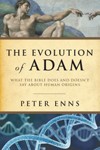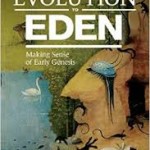 Al Mohler believes that God created the cosmos, including humanity, about 6000 years ago, but with “apparent age.”
Al Mohler believes that God created the cosmos, including humanity, about 6000 years ago, but with “apparent age.”
That means that the cosmos only looks billions of years old because God created it to look old.
This is Mohler’s solution to why the earth looks so old when the Bible says it is so young.
“Apparent age” allows Mohler to accept the observations of science while rejecting the interpretation of those observations by scientists. The interpretation of those observations remains securely with Scripture itself, not with scientists or others who refuse to accept the Scripture’s “clear” teaching.
The strategic benefit is clear: Mohler can–in a sense–“accept” the scientific data while also remaining a biblical literalist. Science only studies what God appeared to have done, and scientists are free to have at it. Scripture, however, tells us, without fear of contradiction, what God actually did.
This kind of thinking may appear to be a tidy solution the problem, but in fact it creates many more.
The most pressing problem–not only here but at any point where Mohler discusses the science/faith issue–is that Mohler simply asserts that Genesis is prepared to tell us how old the earth is. That assertion is what puts him in the bind of having to “reconcile” Genesis and science in the first place.
But Mohler’s opinions about a literal reading of Genesis need to be articulated and defended, not simply asserted–which would require Mohler to interact patiently with those many Christians who have very good reasons for not reading the opening chapters of Genesis as a literal account of history.
That is a topic for another day. Here, even accepting Mohler’s literalism for the sake of discussion, “apparent age” loses its traction fairly quickly. We will look at one reason why today and two more in my next post.
“Apparent age” is an arbitrary claim that makes the “facts fit the theory.”
It is surely obvious that the theory of “apparent age” is generated to make the observations of science fit Mohler’s literal reading of Genesis. Unless one were precommitted to a literal reading of Genesis, one would never think of making this sort of claim.
observations of science fit Mohler’s literal reading of Genesis. Unless one were precommitted to a literal reading of Genesis, one would never think of making this sort of claim.
Making facts fit theory is an unfortunately common, yet still unacceptable, method of establishing one’s point. It is particularly common in theological debates, where one assumes that one’s own theological pre-commitments are the sure and unassailable point of departure.
One’s theology is to be defended, never examined. Counterarguments are either molded to fit the theory or ignored altogether.
This is why true discussion–an exchange of ideas–is often unproductive in these instances. The issues at stake are bound up with ideological self-preservation.
If Mohler were to admit that the Bible can be read in a less than literal manner regarding Genesis—well—the dominoes would start unraveling down the slippery slope. This is not an option for Mohler.
When fear of losing one’s “all-encompassing narrative” is at stake, reasonable assessment of contrary evidence is an early casualty, which leaves us with “explanations” like “apparent age.”
Such explanations demonstrate that the theology driving them is a barrier to truth more than its guardian.
If an opponent of Mohler’s were to employ the same type of ad hoc explanation to establish a contrary point, I imagine Mohler would not find it convincing.
Many—might I say, most—Christian thinkers trained in these matters (science, biblical studies, theology, philosophy) are deeply invested in working through how Genesis is to be read not only in view of evolution, but of our growing understanding of how “origins stories” worked in the ancient Near Eastern world (a whole other topic).
I do not think it is wise for Mohler to cut oneself off from these potential conversation partners and retreat to an ad hoc explanation like “apparent age.”
It is even less wise for Mohler to counsel others that they must follow his lead.














